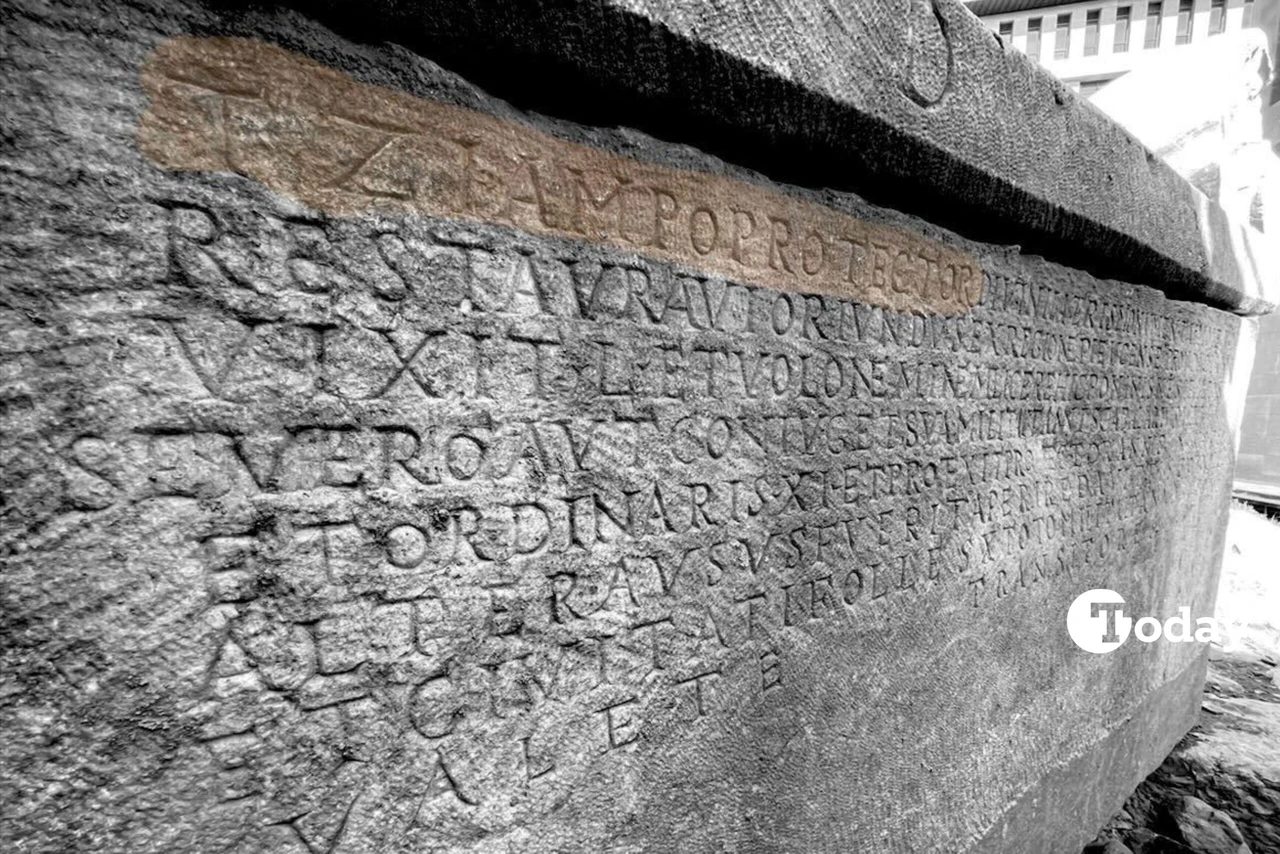64,000-year-old workshop discovered in Türkiye’s Inkaya Cave
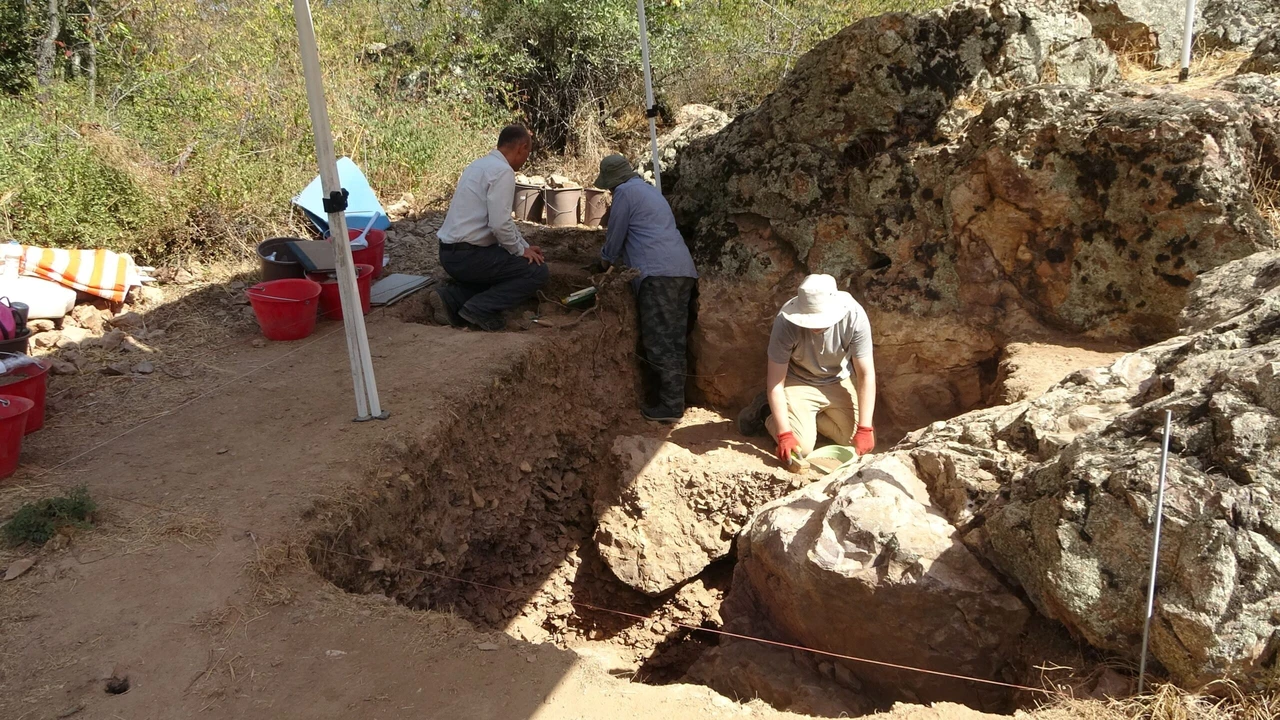 During the 2024 excavations in Inkaya Cave within the borders of Bahadirli village in Can district of Canakkale, Türkiye, it was found that people lived in the 64,000-year-old workshop and used the area for 24,000 years, September 15, 2024 (IHA Photo)
During the 2024 excavations in Inkaya Cave within the borders of Bahadirli village in Can district of Canakkale, Türkiye, it was found that people lived in the 64,000-year-old workshop and used the area for 24,000 years, September 15, 2024 (IHA Photo)
Archaeologists working in Türkiye’s Inkaya Cave, located in Bahadirli village, Can district of Canakkale, have uncovered a 64,000-year-old workshop, revealing that humans used this space continuously for 24,000 years. The discovery offers significant insights into the daily lives and craftsmanship of early humans.
Excavations led by professor Ismail Ozer from Ankara University’s Department of Anthropology have been ongoing since 2017. Initial digs were conducted by an international team under the scientific coordination of professor Ozer and the direction of the Troy Museum.
Since 2021, these excavations have been upgraded to “Presidential Decree Excavation” status. The 2024 fieldwork, sponsored by Troy Copper Mining and T Design, is supported by the Ministry of Culture and Tourism, with a 15-person team on-site.
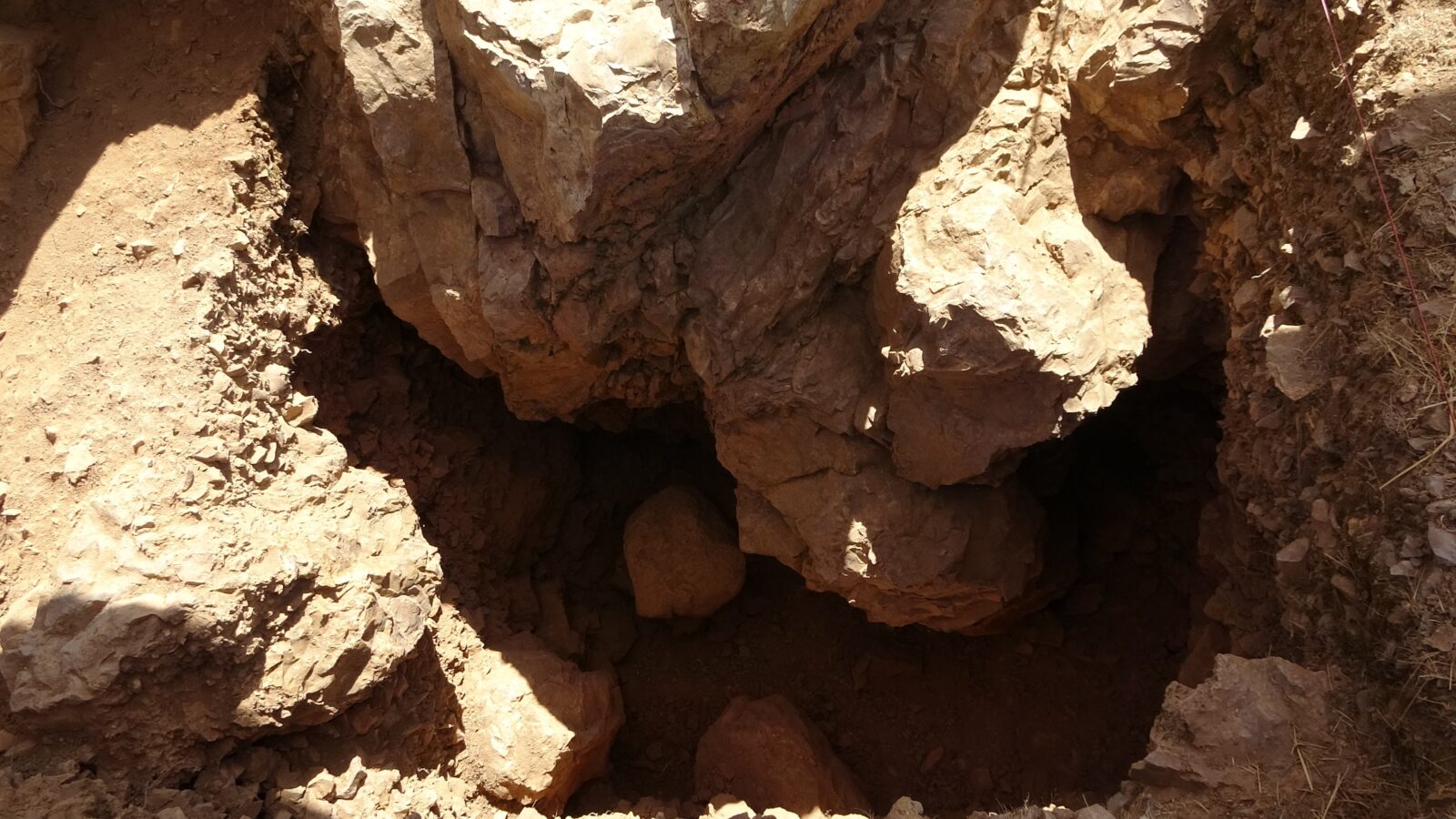
Inkaya: Hub of Paleolithic life and craftsmanship
The focus this year has been on the western section of the cave, where stone tools such as flakes, scrapers, cores and blades made from flint and basalt have been unearthed.
These tools date back between 40,000 and 64,000 years, demonstrating that early humans in the Middle Paleolithic era not only used the cave as a long-term residence but also as a workshop to create tools essential for their survival.
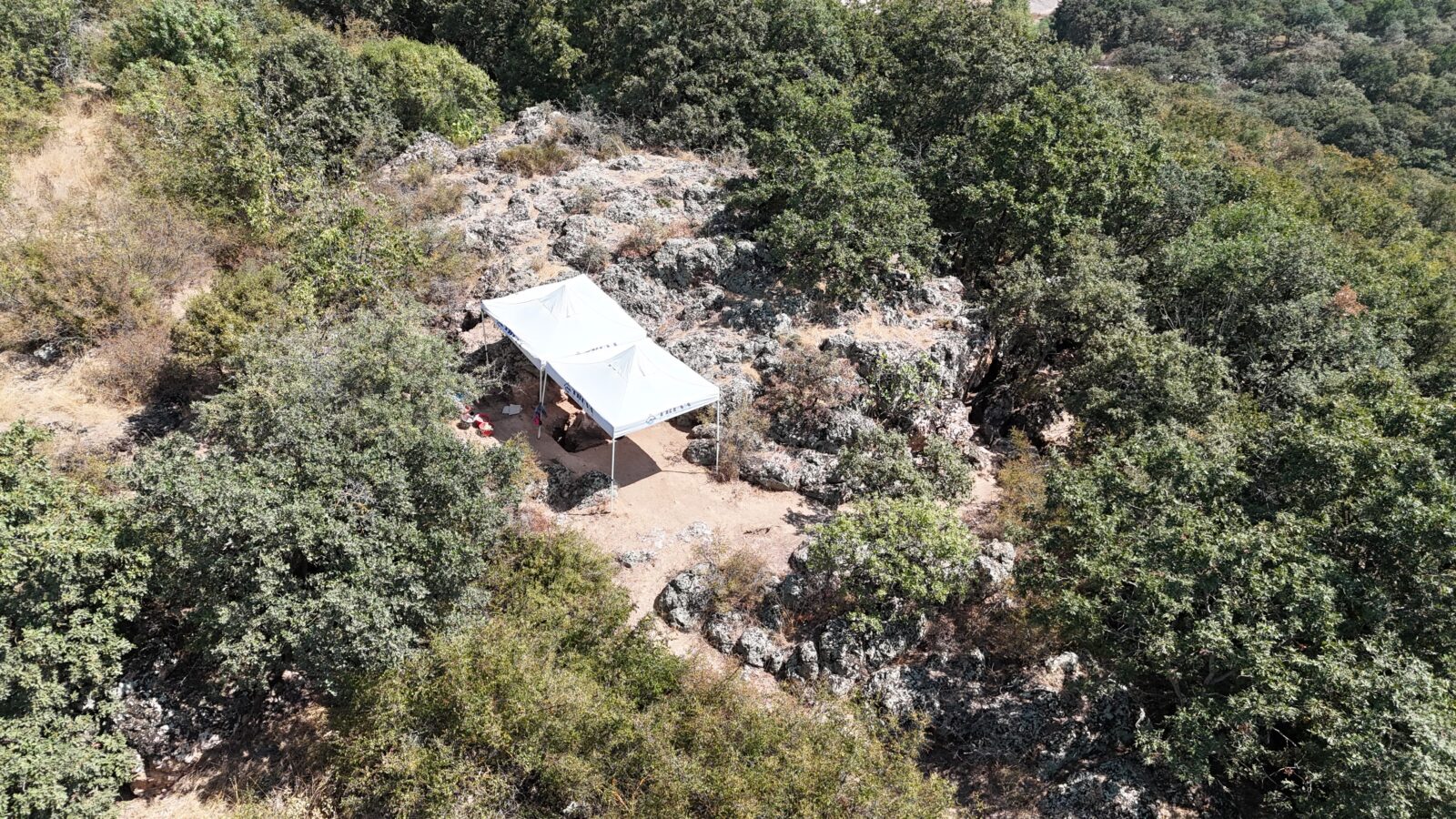
Professor Ozer shared insights on the excavation’s progress: “We began this year’s dig on July 8 and have made considerable headway. The current excavation has reached a depth of 250 cm, where we’ve uncovered remarkable evidence of human life from 64,000 to 40,000 years ago. Next year, we aim to reach depths of 3-3.5 meters, as we believe more significant findings are yet to be revealed.”
The cave itself spans approximately 400 square meters, with a 100,000-square-meter surrounding area serving as a hub for ancient human activity. The dense presence of stone tools found both inside and around the cave indicates that it was a thriving center for tool production and daily life over millennia.
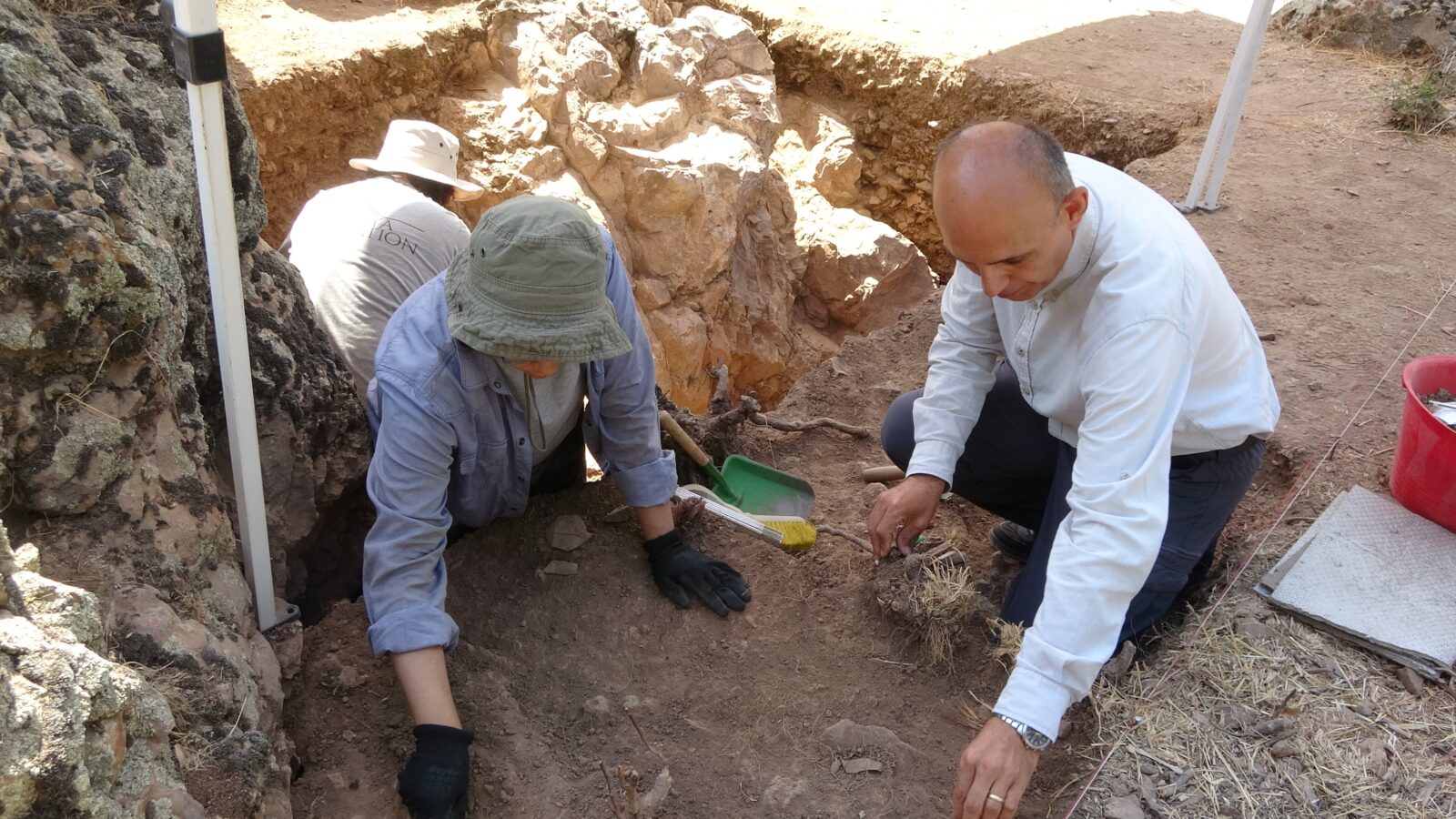
Professor Ozer noted, “Inkaya Cave is part of a broader network of 39 Paleolithic sites in the Can region. It wasn’t just a residence; it was a workshop where early humans crafted the tools they needed for hunting and daily tasks. The sheer number of stone tools uncovered points to a highly populated settlement.”
The discoveries made in Inkaya Cave continue to shed light on human evolution and migration patterns, with future digs expected to yield even more groundbreaking results.


